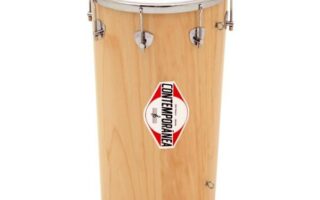In a world where digital connections thrive, the quest for meaningful interactions often leads us to the familiar realms of dating apps. While Grindr has long enjoyed its status as a heavyweight in the LGBTQ+ community, many users are now seeking alternatives that align more closely with their individual preferences and desires. Whether you’re looking for a more diverse user base, enhanced privacy features, or a community-oriented experience, the options are plentiful. In this article, we’ll explore some of the best alternatives to Grindr, designed to cater to various needs and interests. Step into a universe of possibilities where authentic connections await, and discover the tools that can help you forge new relationships in the vibrant landscape of modern dating.
Table of Contents
- Exploring Diverse Platforms for LGBTQ+ Connections
- Key Features to Look for in Alternative Dating Apps
- User Experiences: Success Stories Beyond Grindr
- Safety and Privacy: Ensuring Your Online Dating Security
- Q&A
- In Summary
Exploring Diverse Platforms for LGBTQ+ Connections
In the quest for meaningful connections within the LGBTQ+ community, a growing number of platforms have emerged, offering diverse ways to engage and interact. These alternatives not only provide opportunities for dating but also foster friendships and community support. Some of the best options to explore include:
- Tinder: A versatile app that caters to a broad audience, allowing users to connect for casual dating or serious relationships.
- HER: Specifically designed for LGBTQ+ women and nonbinary individuals, this app emphasizes community-building and social events.
- OkCupid: Known for its comprehensive questionnaires, it helps users find matches based on personality compatibility and mutual interests.
- Scissr: A platform aimed at connecting LGBTQ+ women, providing a safe environment for chat and community engagement.
Each of these platforms offers unique features tailored to different needs, and they promote inclusive environments for everyone. For example, OkCupid and Tinder boast expansive user bases, making it easier to find someone within your geographical area, while HER focuses on community events tailored to users’ interests. The growing diversity in connection platforms allows individuals to select the one that feels most aligned with their intent, be it dating, friendship, or something in between. Here’s a quick comparison of these platforms:
| App Name | Target Audience | Key Features |
|---|---|---|
| Tinder | General LGBTQ+ | Swipe-based matching, broad audience |
| HER | Women & Nonbinary | Community events, social networking |
| OkCupid | General LGBTQ+ | In-depth questionnaires, diverse matching |
| Scissr | Women | Focus on safety, community chats |
Key Features to Look for in Alternative Dating Apps
When exploring alternatives to mainstream dating apps, it’s crucial to consider features that enhance user experience and widen your dating prospects. Look for apps that offer robust profile customization, allowing users to express their personality through photos and unique bios. Additional features such as advanced search filters can help match users based on specific interests, preferences, and lifestyle choices, enabling more meaningful connections. A solid messaging system, particularly one that supports multimedia content, will also foster better communication between potential matches.
Another important aspect is the safety and privacy features integrated into the app. Seek platforms that provide anonymity options, such as the ability to hide certain profile details until trust is established. Additionally, look for apps that utilize identity verification processes to reduce the chances of encountering fake profiles. Some apps even incorporate community guidelines or moderation to ensure a respectful and safe environment. a supportive community can enhance your experience, so opt for apps that facilitate group discussions, events, or forums where users can connect beyond one-on-one chats.
User Experiences: Success Stories Beyond Grindr
Many individuals have discovered alternative platforms that cater to the LGBTQ+ community, enhancing their dating experiences beyond the familiar interface of Grindr. These alternatives often provide unique features that resonate well with users seeking genuine connections. For example, apps like HER and Tinder are not just about casual encounters but emphasize building relationships and community. Users have reported successful outcomes, such as finding long-term partners and even establishing supportive friendships. Here are some key highlights:
- HER: Focused on LGBTQ+ women and nonbinary individuals, promoting inclusivity.
- Tinder: Expanding its features to create safe environments for LGBTQ+ users.
- OkCupid: Known for its extensive questioning to match compatibility, enhancing connection.
While tales of fulfilling romances are plentiful, memorable anecdotes illuminate the organic connections that some users have built. For instance, a couple met through Hinge and later celebrated their first anniversary with a trip across Europe, while another found love on Scruff and began a community-focused project championing LGBTQ+ youth. Below is a brief compare-and-contrast of some popular platforms:
| App | Target Audience | Notable Features |
|---|---|---|
| HER | LGBTQ+ women & nonbinary | Community events, dating, friendship |
| Hinge | General LGBTQ+ | Focus on relationships, prompting questions |
| Scruff | Gay/bisexual men | Travel buddy feature, group events |
Safety and Privacy: Ensuring Your Online Dating Security
When engaging in online dating, especially on platforms that cater to the LGBTQ+ community, it’s crucial to prioritize safety and privacy. Many users are concerned about sharing personal information and the lingering risks associated with digital interactions. Here are some essential tips to safeguard your personal data:
- Use Strong Passwords: Ensure that the passwords you create are unique and complex, incorporating a mix of letters, numbers, and special characters.
- Limit Personal Information: Avoid sharing sensitive details such as your full name, address, or financial information until trust is established.
- Enable Two-Factor Authentication: Use platforms that offer this feature for an extra layer of security.
Additionally, it’s beneficial to familiarize yourself with the privacy policies of any dating platform you choose. Knowing how your information is stored, handled, and shared can help mitigate potential risks. The following is a comparison of some popular alternatives in terms of their security features:
| App Name | Data Encryption | Profile Verification | Two-Factor Authentication |
|---|---|---|---|
| App A | End-to-End | Available | Yes |
| App B | Standard | Limited | No |
| App C | High-Level | Yes | Yes |
Q&A
Q&A: Exploring the Best Alternatives to Grindr
Q: What led to the search for alternatives to Grindr?
A: The search for alternatives to Grindr often stems from a desire for a different user experience, a more inclusive community, or concerns about privacy and data security. Users may seek platforms that offer unique features, facilitate deeper connections, or align more closely with their values.
Q: Are there specific reasons why someone might prefer alternatives over Grindr?
A: Absolutely! Some individuals prefer apps that prioritize a more comprehensive dating experience rather than just hookups. Others may look for communities that are more welcoming to diverse sexual orientations and preferences. Additionally, some users are concerned about the platform’s data practices and seek alternatives that emphasize user privacy.
Q: What are some popular alternatives to Grindr?
A: Among the notable alternatives are:
- Scruff: Known for its inclusive approach and diverse user base, Scruff allows users to showcase their personalities with detailed profiles and offers features like travel connections.
- HER: Specifically geared towards LGBTQ+ women and non-binary individuals, HER fosters a friendly community and offers social features like events and group chats.
- Tinder: While not exclusively for LGBTQ+ users, Tinder is widely used and allows users to set their sexual preferences, making it a versatile option for many.
- Hornet: A globally-oriented app that focuses on community building and content sharing, enhancing the social experience for its users.
- OkCupid: This app uses a more extensive questionnaire to match users based on interests and compatibility, making it appealing for those looking for meaningful connections.
Q: What features should users look for in a Grindr alternative?
A: Users should consider features that enhance their experience, such as:
- Privacy settings: Robust options that allow users to manage their data and visibility.
- Profile customization: The ability to share more about oneself through various prompts and custom fields.
- Community engagement: Features like forums, group chats, or event listings to foster connection beyond individual interactions.
- Safety measures: Tools to block or report users and ensure a secure dating environment.
- User demographics: A platform that genuinely caters to their identity and relationship preferences.
Q: How do these alternatives maintain a sense of community?
A: Many alternatives prioritize community by incorporating social features and promoting inclusivity through events, profiles that tell personal stories, and tools that facilitate discussion. For example, some apps host group discussions around LGBTQ+ issues or local events, allowing users to connect on a broader level.
Q: What are the potential drawbacks of using these alternatives?
A: While alternatives to Grindr can offer different benefits, some may have smaller user bases, which could limit options in certain locations. Others might lack the same level of brand recognition or user familiarity, leading to a learning curve. Additionally, some platforms may operate on a freemium model, where certain features require a paid subscription.
Q: How can users decide which platform is right for them?
A: Users should reflect on what they value most in a dating app. Consider factors like the type of connections sought—casual versus serious—as well as community feel and safety features. Testing out a few different platforms can also help in finding the right fit, as each offers a unique vibe and functionality.
Q: What’s the key takeaway for users exploring alternatives to Grindr?
A: The right dating app can greatly enhance one’s experience in the LGBTQ+ community. By exploring various platforms, users can find one that resonates with their personal desires, enhances their online dating experience, and fosters authentic connections. The journey is as important as the destination, and each platform offers a new avenue for self-discovery and connection.
In Summary
As we conclude our exploration of the best alternatives to Grindr, it’s clear that the landscape of dating apps is as diverse as the individuals who use them. Whether you’re seeking meaningful connections, casual encounters, or even just a welcoming community, there’s an option out there for everyone. Each platform offers unique features and caters to different preferences, ensuring that users can find spaces that align with their needs and desires.
In this ever-evolving digital age, embracing new avenues for connection can lead to surprising and fulfilling experiences. So, whether you opt for a niche app that fosters deeper bonds or a broader platform that facilitates spontaneous interactions, remember that the journey of connection is as important as the destination. The alternative path you choose might just pave the way for unexpected friendships, thrilling romances, or even a sense of belonging.
Happy exploring, and may you find the perfect match—whatever that may mean for you!


